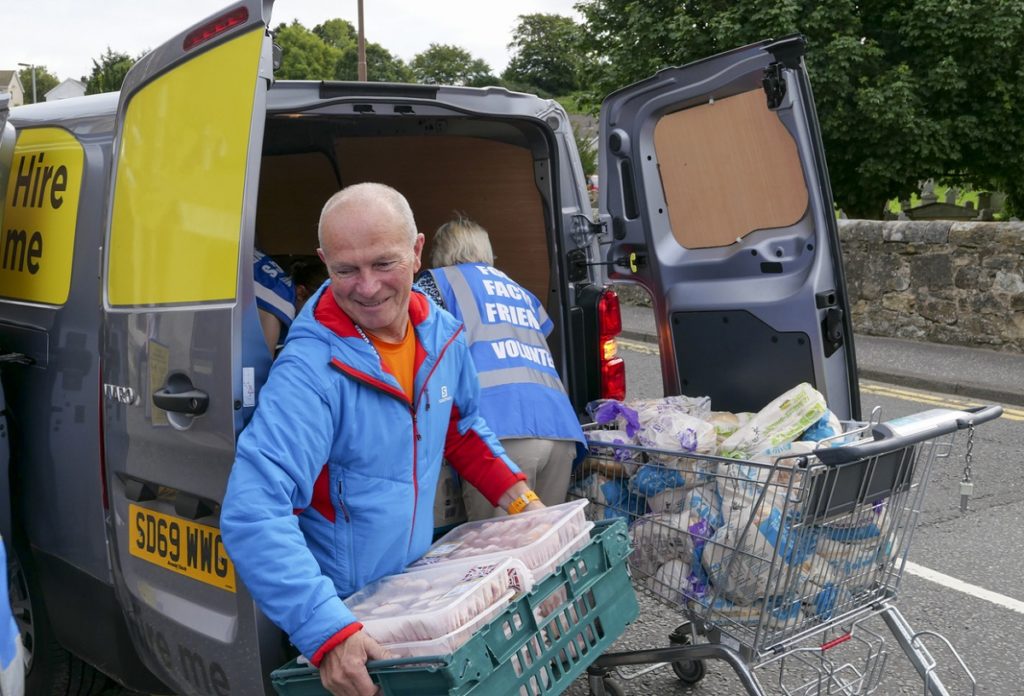For many of us COVID has shrunk our existence. Not just our physical space but our expectations of ourselves.
According to a study conducted by University College London, this lockdown is characterised by less exercise and more TV and gaming. But it isn’t just our personal well-being that has suffered, the survey also revealed that the amount of time spent volunteering has decreased.
Our horizons have become contained within the four walls of our homes; focusing this week on what we can and are able to give up for Lent, the indulgences we want to halt, the food we want to eat less of. The energy of innovative community projects and creative acts of selflessness seems like a distant memory; lost in the exhaustion of home schooling or drain of loneliness.
For many people in poverty the symptom of their problem is not so different from our own; they feel hopeless, unable to see beyond their current circumstances. For many, the prospect of giving up something for Lent is not a novelty excuse, but a daily choice to choose between food and bills. I have visited schools in deprived areas across the UK and teachers report time and time again that the main problem they face is that children cannot see a sense of value in attainment. They feel trapped, unable to aspire to a better future. The difference is that for those in poverty the stakes are infinitely higher.


A study by The Legatum Institute last November revealed that almost 700,000 people had been driven into poverty by covid, including 120,000 children. The toll poverty takes on families across the country is devastating. It is estimated that an additional 900,000 children have claimed free school meals since the beginning of the pandemic.
If we find ourselves feeling hopeless whilst enjoying relative wealth and comfort, how much more will this be the case for those who are living in the uncertainty of when their next meal will come from?
The reality is, whilst we might feel hopeless most of us are not in hopeless circumstances. Our hopelessness comes from our own feeling of helpless. With lockdown limitations, it is easy to feel that there is no point in even trying. But that is not true! Yes, there is need all around us, but there is also the opportunity to transform lives and bring hope.
That may sound incredibly daunting. But it is not about swooping in with your great ideas and saving the day but listening and walking alongside people. Making it a part of your life.
In your walk or doorstep conversation with a neighbour, ask how they are. Not just in a surface level British way, but how they are really doing. Then listen. Listen, listen, listen. Don’t presume or jump in with your clever solutions. Listen; be willing to change your mind about them, their needs and the pressures they are under. Only then can you act on it. It might not seem revolutionary, but you need to make the first move, open up and be willing to be honest yourself, invest in the relationship.
If we are going to really tackle poverty and transform lives it is not going to be a quick fix. It is going to take personal investment and determination. But we are not alone. Engage with your community. Look into what is going on in your area, Google is never a bad place to start. Make the initial step to help, send the first email and get stuck in.
Charities, churches and community groups up and down the country are desperate for help. And as you get to know the needs around you and the resources available you will be equipped to connect people with the help and expertise they need.
We need to see people holistically, not just the immediate needs. We need to build relationships and take people on a journey from a place of survival to one of safety and security. A journey that gives them hope.
Communities need to come together to meet the needs of those in their midst and Feed The Hungry, The Trussell Trust and countless other charities are looking to support them as they step out. The Halo Centre that opened in Coventry just last week was established to equip churches and community groups in assisting vulnerable families and children in the local area. The centre not only provides practical support to those in need, but also hope to build long term relationships with those going through difficult times.
As we face the reality of the poverty that will come in the wake of covid we cannot shrink our expectation of ourselves. We need to step up to the challenge, see beyond our circumstance and bring our communities the security they so desperately need. It is people like you that can bring them hope. Maybe this Lent, instead of giving up something, take up the challenge of giving out to your neighbourhood?









